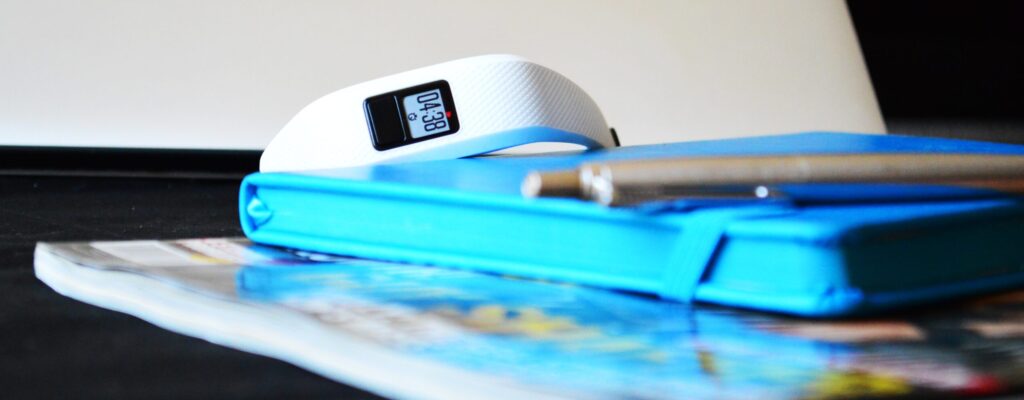Coping | Daily Life | IBD

I’ve been having a difficult time recently with a flare that has caused me to switch biologic medications, not once but twice in the last few months. It’s always tough deciding when to throw in the towel with an ineffective drug. I’ve relied almost exclusively on one of the most important tools in my IBD toolkit to help my doctor and me make these choices: my symptoms tracking app.
At my last appointment, I pulled out my phone and showed my doctor patterns of increasing frequency of my bowel movements, ongoing issues with abdominal pain, and decline in stool consistency. She reflected how excellent it was to have such a prepared and detailed patient to make this change in treatment an easy and clear choice.
IBD can be a messy disease, with indescribable moments of embarrassment, and ups and downs that are hard to quantify. But when Crohn’s gives me no control over my own body, I find comfort and confidence in keeping these daily logs that help my GI doctor and me monitor the progression of symptoms in my body and gut.
Tracking my symptoms also prevents me from minimizing my experience. I’m infamous for gaslighting myself, always saying, “Oh, it wasn’t that bad. I’m really feeling okay-ish. I’m sure I’m misremembering how terrible that day was.” So many of us try to push through the hardest parts, to put our heads down and just keep moving no matter how terrible we feel. It’s like being a frog in hot water: sometimes, we just can’t recognize how bad things have really become.
In many cultures, women are taught to minimize our pain, to prioritize our care of others over our own needs. As IBDers, acknowledging the fact that we are living through one of the hardest points in our lives is a powerful tool for respecting how strong we really are. I sometimes find it overwhelming to look back at the daily logs of my worst days. I remember having to assemble dinner sitting on a stool on the floor of the kitchen because I was too tired to stand up. Or being unable to get off the toilet, bent in half in pain, but answering math homework questions while my son sat on the other side of the bathroom door.
There are downsides to tracking your symptoms or keeping a food journal. There’s a particular emotional burden that comes from having to quantify your entire life. Always reaching for your phone or notebook or spreadsheet to write down one bite of a cookie, or track every daily drug, can be exhausting. I sometimes find myself resentful of the never-ending logging, especially when I’m in a phase of good health and remission. I dislike that it feels like an all-or-nothing process: if I miss a day, I’ll corrupt all my data. I have to work hard to counter that toxic guilt, and remind myself that it’s okay to miss a day, or a week. I’m trying my best, and sometimes a break is important to find my mental and emotional balance.
If you’re interested in starting to track your symptoms, or if your doctor has asked for you to log your food or habits, I recommend trying a few different apps to figure out which one is easiest for you to access and log on your preferred device. Research whether it will keep your data safe and private, and whether it’s easy to export and back up your information. Does it have all the features you need, or that your doctor has asked for? There are some apps that are free, and some that are a one time fee, and others that require an ongoing subscription.
I use an app called mySymptoms on my iPhone to track my bowel movements. I can log the date, time, Bristol scale (which helps me show the consistency of the stool), urgency and other notes that are important. I also log my abdominal pain, rectal/fistula pain, blood in stool, gas and nausea on scales of 1-10. I log all of my medications and dosages as well, and add separate notes about whether I had my infusions or injections, or if there were other important life factors that might impact my symptoms, like high stress or travel days. When I need to keep a food log, I use MyFitnessPal which has an extensive repository of food items that I can favorite and add to recipes to easily divide into portions.
There are numerous apps for you to look at if you’re interested in starting this process. Some of these are IBD specific, and others are geared towards tracking IBS or other chronic illness symptoms, but can be adapted to be used by IBDers. This is not a complete list of apps, or an endorsement, but a good place to get started (some may be unavailable in your area):
• Bearable
• Mygut
• LyfeMD
• Plop
• Bowelle
I won’t list all the options for food tracking, since there are so many more out there in the smart app universe. I also hear wonderful things about bullet journals, planners and sticker logging, and how customizable it is to use a classic spreadsheet. As a data fiend, I’m especially fond of exporting my data in a CSV file and building graphs and charts to show the cycling of my symptoms over time. Finding what works for you is key to making the process easy and simple every day.
Tracking my Crohn’s symptoms helps me to look back and honor how far I’ve come, how much I’ve endured, and it helps me to keep my daily agonies in perspective. I have the data to show me that I can bear with the worst and come out the other side.
 About the Author
About the Author